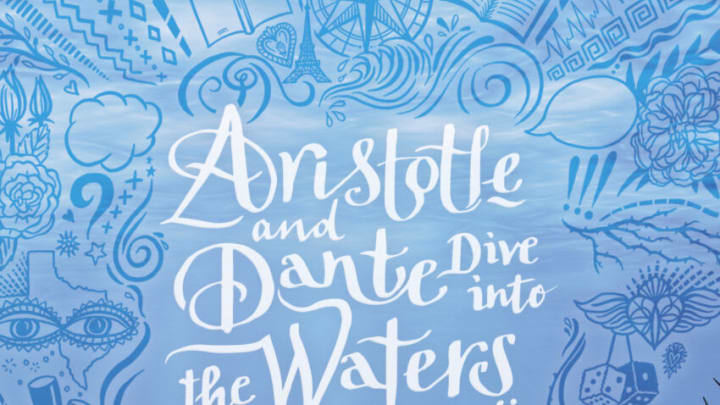Content warning: contains mentions of transphobia
Benjamin Alire Sáenz’s pensive and lyrical queer Latinx story Aristotle and Dante Discover the Secrets of the Universe was published nearly a decade ago to much critical acclaim and has largely been upheld as an important part of the queer canon.
Aristotle and Dante Dive Into the Waters of the World, the unexpected but long-awaited sequel has finally arrived, picking up roughly where the first book left off. Best friends Ari and Dante must navigate their new romantic relationship in late 1980s El Paso, Texas.
Like the first novel, the plot is merely a tool for the characters to service the themes of the book, in this case, self-discovery, identity, love, grief, and friendship. The sequel begins with Ari and Dante in the summer before their senior year, a precious bubble in time before they have to grow up and face the reality around them.
These realities are numerous, specifically, what does it mean to be a gay man at this point in time and in the world in which they live? Though the novels take place contemporaneously, the sequel pointedly discusses the looming AIDS crisis, with fear and homophobia as a devastating backdrop for Ari and Dante’s blooming love and queerness.
As they go throughout the school year, and decisions about college grow nearer, Ari and Dante have to face big questions about their relationship as Dante’s more serious academic nature takes him abroad and Ari’s lackadaisical attitude keeps him close to home. You can likely guess where that conflict heads.
Along the way, Ari discovers his voice and what it means to fight for his place in the wide “waters of the world” making for a journey that is utterly readable and heartfelt. However, it’s hard to ignore the growing criticisms of the first book, which seem to be sloppily addressed within the text of the sequel.
Spoilers ahead for Aristotle and Dante Discover the Secrets of the Universe.
If you haven’t read or have forgotten Aristotle and Dante Discover the Secrets of the Universe, one of the big reveals toward the end of the book is that Ari’s brother is in prison for murdering a trans sex worker. Though the original novel has received much acclaim and has overall been beloved, this particular plot point has been rightly criticized as transphobic.
The sequel finds Ari visiting his brother, coming face to face with him for the first time since he was a toddler. Within the novel, the intent of the scene seems to be for Ari to exorcise the demons of his brother and move on, but on the page, it reads like the author speaking to his critics, misgendering the novel’s victim in the process.
Sáenz’s work is quiet and lyrical by nature. Ari and Dante don’t go on huge, dynamic character arcs. Their journeys are quiet and insular. This makes it all the more strange for Ari to suddenly externalize opinions about trans issues.
An absence of addressing the critique may not have been better, but it certainly doesn’t feel natural to the characters.
Overall, fans of the original book will be satisfied. Saenz’s lyrical prose is as beautiful as ever and he remains true to the characters. You can get your copy now wherever books are sold.
Let us know if you add Aristotle and Dante Dive Into the Waters of the World to your TBR!
